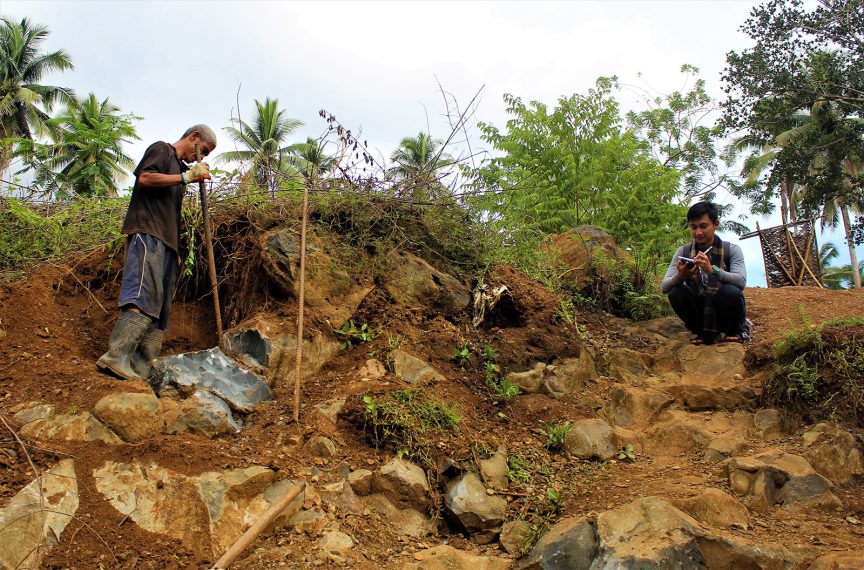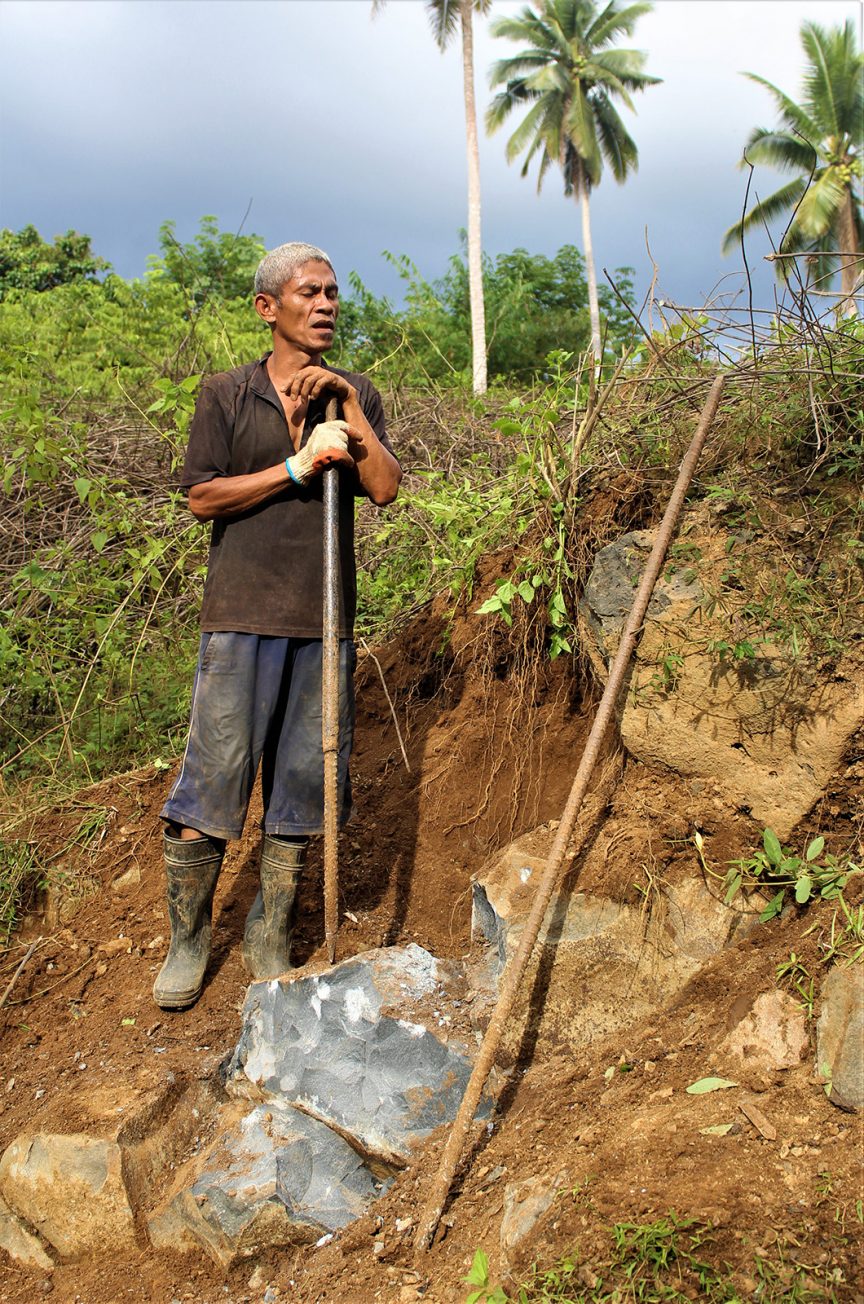 Stone cutter meets the peace builder on October 9, 2017. JULES BENITEZ
Stone cutter meets the peace builder on October 9, 2017. JULES BENITEZ
PATIKUL, Sulu (MindaNews/10 October) – Epal Sahipa, 46, is a stone cutter. Daily he would go to that side of the mountain where he would unearth boulders using his iron bar. He would pound the boulder into manageable sizes and haul them to a nearby flat ground where he would spend the entire day chipping them into one square inch gravel. The gravels are being used in the construction of roads. One half pail of cut stones would sell for P3.50. He earns an average monthly income of P5,000.
Omar Butlangan, 20, met Sahipa when he went to Jolo, Sulu to gather people’s narratives for their “TellFinoy Project,” a social media campaign that hopes to call the attention of government agencies to the plight of the youth and the people living in the margins of society. He is a graduating student of B.S. Nutrition and Dietetics at the Western Mindanao State University in Zamboanga City.
TellFinoy is an output of the Empowerment for Peace through Information and Communication (EPIC) Workshop that Omar and 50 other youth from Metro Manila and the Zamboanga-Basulan-Sulu Area completed last September 24 to 30. PeaceTech, a non-government organization that promotes the use information technology for peace building, conducted the workshop.
Sahipa did not finish elementary school as his family had to evacuate to Zamboanga City when Martial Law was declared and war ravaged the province of Sulu in 1972. He was 13 then. When it was already relatively peaceful, his family returned to Patikul. He did not have the opportunity to go back to school because he had to help his parents earn a living and rebuild their lives.
 At 46, Epal Sahipa still works as a stone cutter. Photo taken on October 9, 2017. JULEZ BENITEZ
At 46, Epal Sahipa still works as a stone cutter. Photo taken on October 9, 2017. JULEZ BENITEZ
Butlangan heard about Martial Law from his parents who were from Parang, Sulu. His parents were also evacuees who fled from one place to another, in search of safety. He recalled his parents graphically telling him how they would hide behind trees at the sight of hovering military plane bombers. Both his parents survived the war in Sulu and were able to finish their college degrees and became teachers who now teach the children in Maluso, Basilan.
The stone cutter could not remember when he started his job, but for him what’s important is that through his labor, his son Yahkub, the eldest of seven children, was able to finish B.S. Criminology recently.
Meeting Sahipa, the questions that ran through Omar’s mind were: “Paano sila nabubuhay na walang pangarap? Sila ba ay nawalan na nang pag-asa o sila ba ay nawalan ng paraan upang mabuhay ng mas maaliwalas?” (How can anyone live without dreams? Have they lost hope or have they just ran out of means to a better life?)
Sahipa looks forward to the day that his life will become better. “Mabaya ako sumanyang in paghula ko ha susungun,” ( I hope in the future my source of livelihood will be less burdensome.) he said.
“Siguro dinala ako ng pagkakataon doon upang makita ang kabilang bahagi ng buhay (Perhaps I was brought by fate to that place to see the other side of life.),” Butlangan thought after meeting Sahipa and the other stone cutters of Patikul that included some children.
“Siguro tinatawag ako ni Allah upang maipakita sa kagaya nilang naghihirap na merong pag-asa at merong ibang paraan (Perhaps I was called by Allah so that I can empower people like them and show that there is hope and there are other alternatives.),” said the budding peace builder.
The stone cutter, on the other hand, did not raise any doubts during the interview. He just answered Omar’s questions. (Jules L. Benitez is a peace and development consultant based in Zamboanga and is the Mindanao Field Officer of PeaceTech.)
